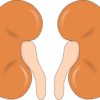One of the problem that makes people not understand the usefulness of the Bible in all areas of life, besides scepticism, outright rejection, disbelief, etc., is that people don’t know, on a very basic level, how the Bible works. As one is very likely to burn the food if not familiar with principles of good cooking; another will be reading the word of God nearly in vain without the right principles of its study.
We list here a few initial study tips we encourage you to implement and God promises even the unschooled won’t err therein, but will become wise.
1) Let it settle that the Bible is authored by God, written by people for people that they may become like God in character
Although written by folk, it’s inspired by God, therefore we need to ask God to help us understand and to make it relevant to us. In fact, mere human intelligence without God is a hinderance. Ask, seek and knock, God tells us, and you’ll find that He will answer by opening for you “the windows of heaven, and pour you out a blessing, that there shall not be room enough to receive it.” 1
Wouldn’t you want that experience?
2) The Bible is a collection of books and not a novel
Bible means book of books and that’s what it is, with 66 collections in one. It’s Written by 40 writers, men and women from different walks of life (shepherds, scholars, farmers, carpenters, tentmakers, doctors, taxmen etc), but authored by God; in a span of 1500 years, beginning with prince Moses 1450bc to John the fisherman 100ad. As you can see, it’s supernaturally authored and preserved, until the day we meet God face to face and beyond.
It’s not a novel, therefore reading from cover to cover might not be useful. Instead, consider that it is a book on history, poetry, origins, business/industry, an instruction manual with guides, reproves and corrects us in right-doing on how to reflect God’s lovely character. It is a complete ideal health manual for our body, mind and soul, yes all in one. It’s designed to transform you into a good person (God’s way). 2
It is written especially for you.
3) The two testaments, predictions and their fulfillments
It is divided in two major sections, the Old and New Testament (or OT & NT); understanding why will remove many apparent difficulties and will help you embrace important truths of God and how He are saves us from sin and makes us new people in Christ.
If the OT were a seed that you sow in an ground, the NT would be the fruit. The OT is a compacted prophecy written before Christ birth (or BC) or a prediction, better yet a promise of a coming Saviour. The NT on the other hand is the fulfilment of that promise, and the record of the arrived Saviour (or AD). This saviour is Jesus Christ.
As a testimony of two is true, the whole Bible gives us strong and clear evidence that Christ is our God. They are inseparable and when one is discarded, it won’t be long till one loses faith in it altogether.
The perfect gospel beauty, good news, is seen only as both the Old and New are studied.
4) Rightly dividing the parts and compering with the whole
The Bible is made up of chapters in each book, in turn chapters are divided into verses. While you can learn a principle from it, when studying, never build you’ll foundation mainly on a single verse. Read the verse, compare with the context of the chapter you are reading, and then with the rest of the chapters in book and the Bible as a whole.3 Doing this keeps you from plunging into erroneous conclusions that the enemy is happy to introduce.
Also, clearly if you knew the historical setting of when, for instance Moses was a prince in Egypt, or how Daniel became a captive of Babylon, or why the cross was used to kill Jesus, it would significantly help your understanding of the Bible.
5) Word for word search study
You can approach a study of a desired topic by searching out all occurrences of the word connected to your topic. Then in turn, read each verse, it’s context if required and compare it with all the other occurrences. When there is no contradictions between the part and the whole, you can with safety take it as truth. Below is an example.
“And she shall bring forth a son, and thou shalt call his name Jesus: for he shall save his people from their sins.” (Matthew 1:21)
“The next day John seeth Jesus coming unto him, and saith, Behold the Lamb of God, which taketh away the sin of the world.” (John 1:29)
Notice how the two writers emphasise how sin is removed from us (the topic), its through Jesus. You can now begin to trust that, so is the case.
What a tool God has authorised us to use! He says to compare “line upon line, line upon line; here a little, and there a little”.4
6) No need to study Hebrews & Greek
The Old Testament was written in Hebrew and New Testament in Greek. The more you utilise God’s word, the more you’ll be confident in your study. James Strong (1822–1894) provided a dictionary for the variation of meaning of Bible words. When used, this is very helpful in correctly apply the nuances. Wikipedia explains Strong’s quite well;
“The purpose of Strong’s Concordance is not to provide content or commentary about the Bible, but to provide an index to the Bible. This allows the reader to find words where they appear in the Bible. This index allows a student of the Bible to re-find a phrase or passage previously studied. It also lets the reader directly compare how the same word may be used elsewhere in the Bible. In this way Strong provides an independent check against translations, and offers an opportunity for greater, and more technically accurate understanding of text.”
Grab it here, if you are an iPhone or Android user.
Additionally there are many Bible commentaries out there that could help you further. My favorit, by the name of Ellen White, could perhaps be the most comprehensive one. Find her complete collection here, www.egwwritings.org.
7) Studying tools
Make sure you have a physical Bible, and then make use of a digital Bible with Strong’s incorporated for searching purposes. Have a notebook, pencil etc. I encourage you to always keep a clean record of your studies, it could come in handy when you receive questions. Other people may find it useful too if you shared it with them. In fact what you’re reading now, came out of such exercise.
A few applications among many that can help you organise your studies are evernote.com, www.olivetree.com and biblegateway.com. I also use blueletterbible.org because it includes Strong’s dictionary.
Tell us how your studies are going and tips we all can benefit from.
References
King James Bible
1) 1 Corinthians 2:14; Matthew 7:7; Malachi 3:10
2) 2 Timothy 3:16
3) 2 Timothy 2:15
4) Isaiah 28:10










